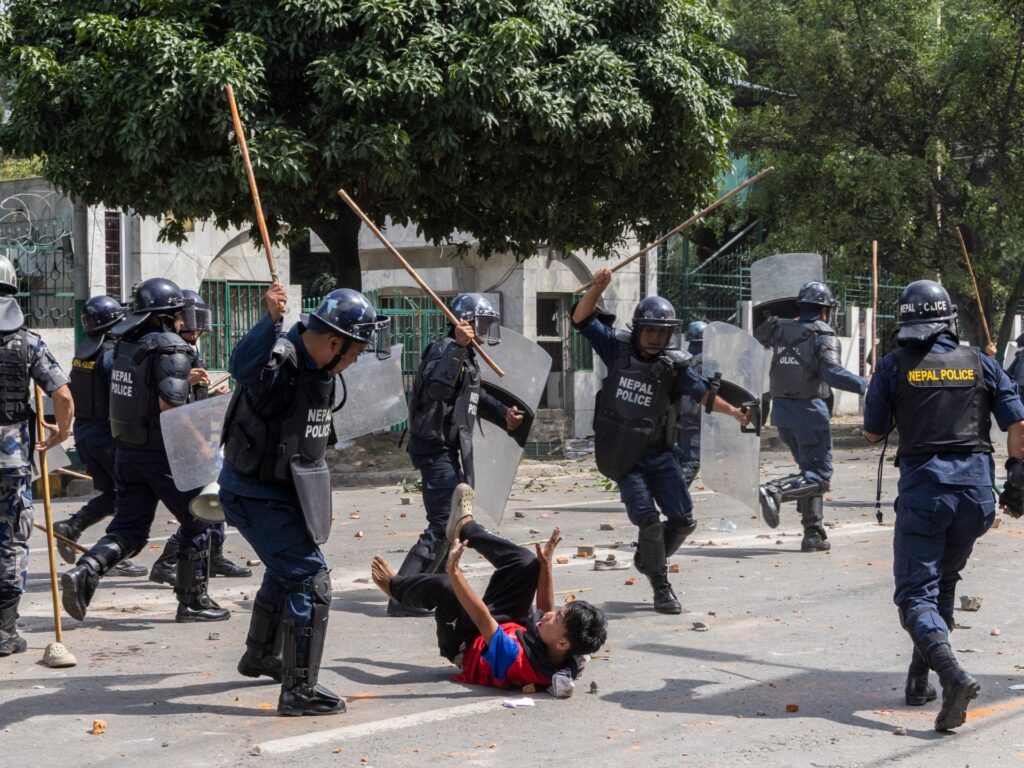Published On 9 Sep 2025
Nepal has lifted its social media ban one day after protests turned deadly, with at least 19 people killed by security forces as demonstrators rallied against internet restrictions and government corruption.
Police fatally shot 17 people in Kathmandu, according to spokesman Shekhar Khanal, with two additional deaths reported in eastern Nepal’s Sunsari district. Officers deployed rubber bullets, tear gas, water cannons and batons when protesters broke through barbed wire barriers attempting to reach Parliament.
Approximately 400 people sustained injuries, including more than 100 police officers. Home Minister Ramesh Lekhak resigned following the violence.
“I had been there for a peaceful protest, but the government used force,” said 20-year-old Iman Magar, who was struck in his right arm. “It was not a rubber bullet but a metallic one, and it took away a part of my hand. The doctor says I need to undergo an operation.”
Emergency vehicles rushed the wounded to hospitals throughout the city. “I have never seen such a disturbing situation at the hospital,” said Ranjana Nepal, information officer at the Civil Service Hospital. “Tear gas entered the hospital area as well, making it difficult for doctors to work.”
The social media ban triggered widespread anger, particularly among younger Nepalis who depend on these platforms for communication. Amnesty International reported that authorities used live ammunition against protesters, while the United Nations called for a transparent investigation.
Millions of Nepalis use platforms like Instagram for entertainment, news, and business purposes. “This isn’t just about social media – it’s about trust, corruption, and a generation that refuses to stay silent,” wrote the Kathmandu Post newspaper. “Gen Z grew up with smartphones, global trends, and promises of a federal, prosperous Nepal. For them, digital freedom is personal freedom. Cutting off access feels like silencing an entire generation.”
Nepal has previously restricted online platforms, blocking Telegram in July over fraud concerns and implementing a nine-month TikTok ban that ended last August when the company agreed to comply with local regulations.
